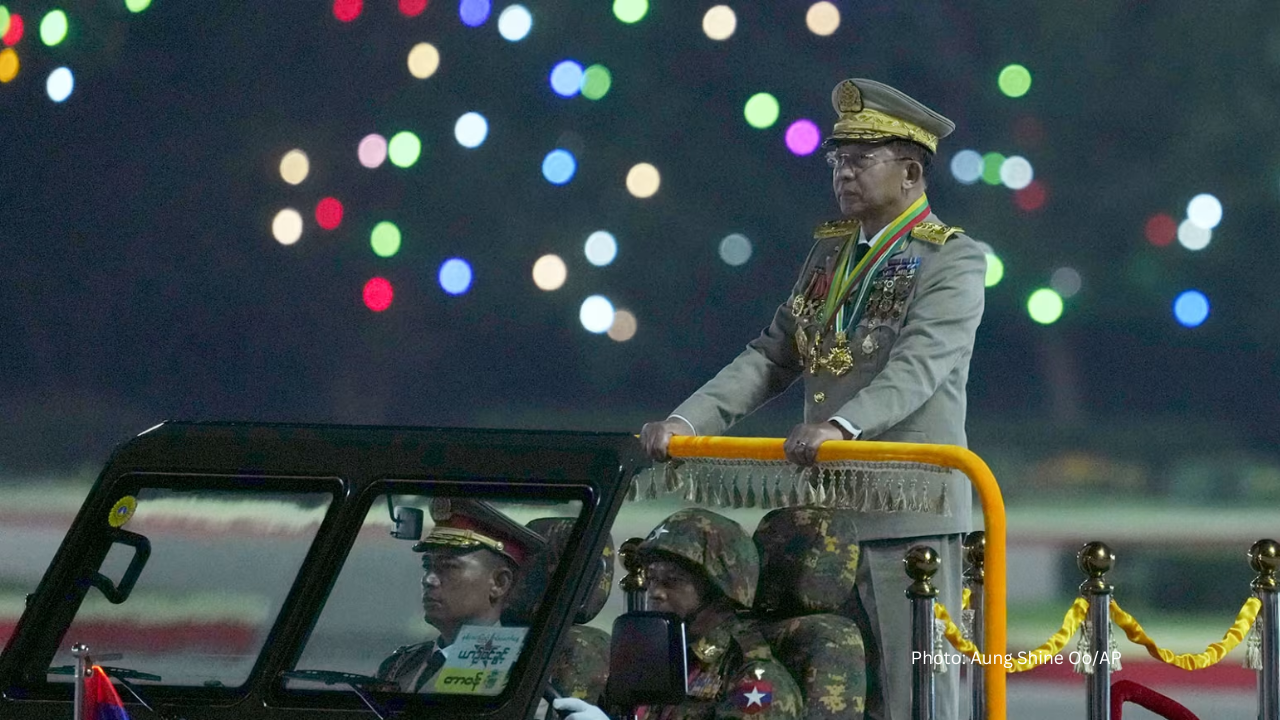Myanmar’s Junta to Hold Election Amid Ongoing Crisis
Thain Shewe Kyaw | 20 July 2025
After the 2021 Military Coup, Myanmar’s military chief, General Min Aung Hlaing, for the first-time has announced plans to prepare for an election to holdin December 2025 or January 2026. General Ming ended the state of emergency and dissolved the ruling State Administration Council (SAC), replacing it with the National Defense and Peacekeeping Commission (NDPC), an interim government that will run the country until a new parliament is formed. But critics say this is only a change in name. The cabinet remaining same, and General Min Aung Hlaing has made himself interim president, keeping full control in his hands.
Even though the state of emergency has officially ended, it is still active in 63 townships where heavy conflict continues with ethnic rebel armies. The Junta says it needs emergency law in these places to “keep stability,” but most of these areas are not under its control.
Since taking power in February 2021, the military has banned most major political parties, including the National League for Democracy (NLD), which won the last two elections with around sixty percent majority vote. Many independent media have been closed or forced to work from abroad, so people have very little access to information.
The Junta is still engaged in heavy conflict with ethnic rebel armies, and large areas of the country including much of Rakhine, Shan, Kachin, Karen, and Chin states, plus parts of Mandalay and Sagaing regions are under these ethnic rebellion armies’ control. A nationwide pre-election census carried out last year could only be completed in 145 of Myanmar’s 330 townships, according to the junta’s own figures, highlighting how limited its reach has become.
Western media have criticized the planned election as a sham that only changes the regime’s name while leaving power firmly in the hands of the Junta. Most popular political parties have been banned, and thousands of political leaders remain imprisoned. International election experts, including the Club de Madrid, have urged countries to maintain sanctions against Myanmar’s Junta and refuse to recognize the regime politically. The United Nations (UN) has also warned that, given the current conditions, the election cannot be free or fair.
China, the Junta’s most powerful ally, is backing the decision to hold the election but may not be supporting General Min Aung Hlaing himself. Analysts believe Beijing could prefer to see another General in power, leading a nominally civilian government that would still safeguard its interests. According to Guardian reports suggest the Chinese leadership views General Min Aung Hlaing as incompetent, particularly after a series of devastating battlefield losses to ethnic rebellionarmies.
The ASEAN group is sending a team to Myanmar to see the situation for themselves before the planned election. The visit will be led by Malaysia’s foreign minister, with members from the Philippines and other countries. Malaysian Foreign Minister Mohamad Hasan says the priority should be to stop the fighting so all sides can talk, not to rush into an election while the conflict continues.
Ethnic rebel armies have rejected the election plans. The Arakan Army (AA) has vowed to block the vote in the majority of Rakhine State, which it controls. Other ethnic armed organizations have issued similar statements, rejecting what they call a meaningless exercise that will only deepen the country’s crisis.
With vast areas outside government control, millions displaced, and political opponents silenced, the junta’s election plan appears less about restoring democracy and more about securing its own survival under a new political label backed by their trusted ally, China.
Thain Shewe Kyaw is an Executive Policy Associate at Centre for Governance Studies (CGS)
Disclaimer: Views in this article are author’s own and do not necessarily reflect CGS policy
